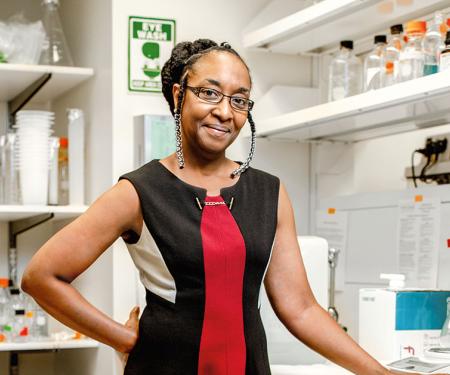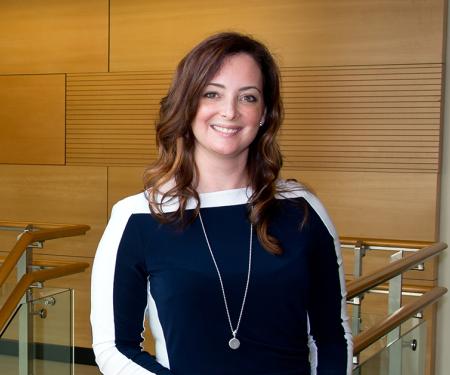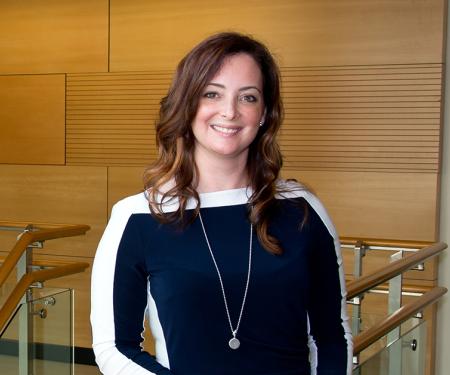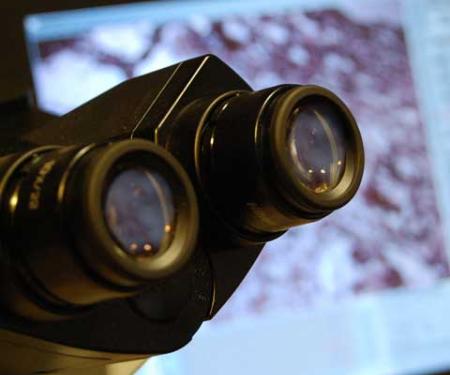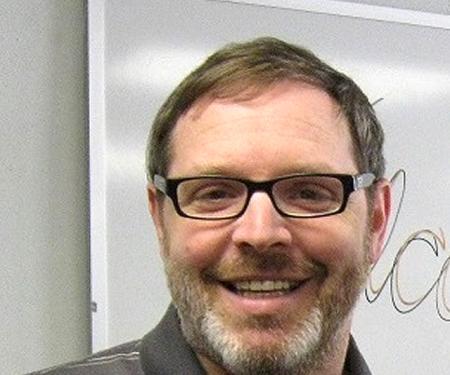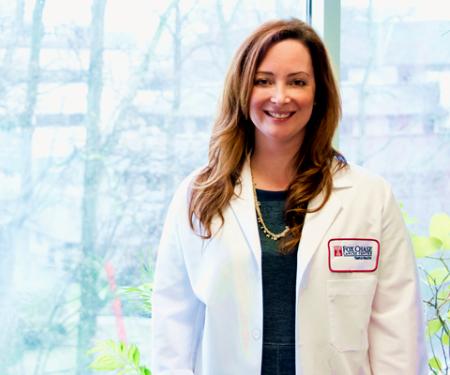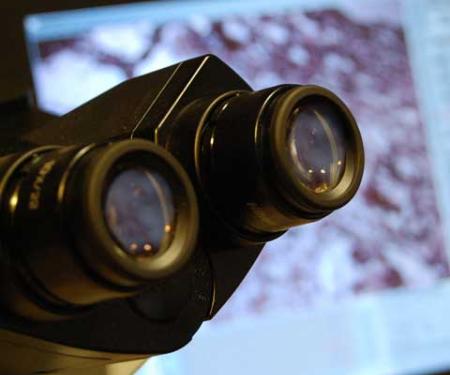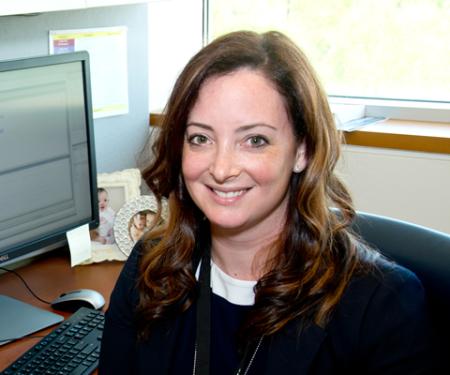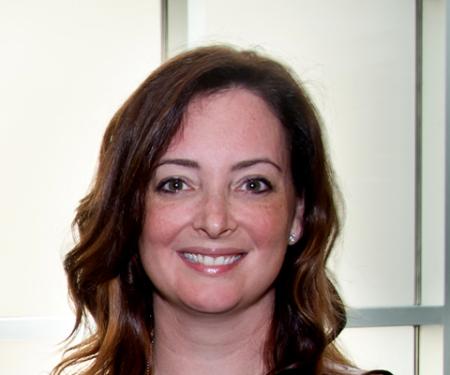This Fox Chase professor participates in the Undergraduate Summer Research Fellowship.
Learn more about Research Volunteering.
Related Articles
00 / 00
Weather Alert: Following the winter storm, all Temple Health hospitals, campuses and clinical locations remain open. Patients will be contacted directly if their visit is affected. Please check TempleHealth.org or FoxChase.org for updates and monitor myTempleHealth for changes to scheduled appointments.

This Fox Chase professor participates in the Undergraduate Summer Research Fellowship.
Learn more about Research Volunteering.
Assistant Director, Office of Community Outreach and Engagement
Assistant Professor, Cancer Prevention and Control, Fox Chase Cancer Center
Co-Director, Center for Biostatistics and Epidemiology, Lewis Katz School of Medicine, Temple University
I’m your “neighborhood researcher” in many ways. I grew up in the Fox Chase area, and my research focuses on understanding how biomarkers and social factors, including neighborhood circumstances, act together to affect cancer. Born and raised in Philadelphia, I feel privileged that I get the opportunity to help those in my community fight cancer as part of my every day. I am grateful to all of the patients and families who participate in research programs at Fox Chase. You are making a difference. Thank you for your commitment. It’s so nice to be home.


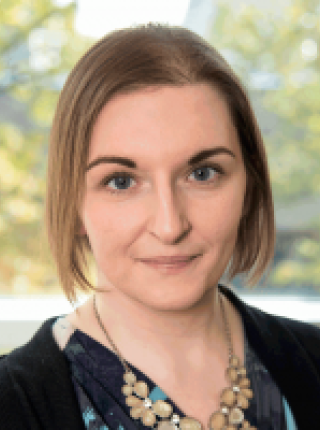

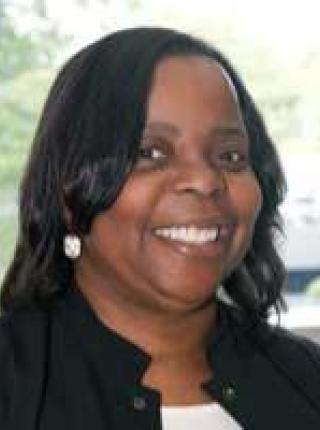
Our laboratory specializes in the integration and analysis of complex, multilevel data resources in order to study how the neighborhood, or environment where a person lives, together with a person’s behavior and biology, can impact cancer risk and cancer health disparities. Specifically, our laboratory develops machine learning and geospatial methods to discover patterns in complex, multilevel risk factor data that can be used to improve clinical risk prediction models for patients and to ensure targeted cancer prevention efforts are deployed to communities disproportionately impacted by poor cancer outcomes. In line with Precision Public Health, our emphasis is not only on identifying patients or communities with higher than expected rates of cancer or identifying multilevel risk factors (e.g. genetic, biologic, behavioral, and neighborhood or environmental factors) from existing disease surveillance resources, but translating this information into action through cancer interventions. Our work is currently supported by funding from the Department of Defense, the American Cancer Society, and the Pennsylvania Department of Health.
Our laboratory specializes in the integration and analysis of complex, multilevel data resources in order to study how the neighborhood, or environment where a person lives, together with a person’s behavior and biology can impact cancer risk and cancer health disparities. Specifically, our laboratory applies machine learning and geospatial methods to discover patterns in complex, multilevel risk factor data that can be used to improve clinical risk prediction models for patients and to ensure targeted cancer prevention efforts are deployed to communities disproportionately impacted by poor cancer outcomes. In line with Precision Public Health, our emphasis is not only on identifying patients or communities with higher than expected rates of cancer or identifying multilevel risk factors (e.g. genetic, biologic, behavioral, and neighborhood or environmental factors) associated with cancer, but translating this information into action through cancer interventions.
In our lab, we utilize and integrate multiple data resources to identify where the cancer burden is and what risk factors may contribute to this burden. This approach allows us to identify high-risk patients and communities who might benefit from cancer intervention, particularly those impacted by cancer health disparities. We currently work with four main data sources: cancer registry data, electronic medical records (EMR), our neighborhood data platform (NDP), and the national Prostate, Lung, Colorectal, and Ovarian Cancer (PLCO) Trial cohort data. We use Pennsylvania and New Jersey cancer registry data to conduct geospatial analyses to identify where there are higher than expected rates of cancer in PA and NJ neighborhoods (identified at the census tract level). We have developed a Neighborhood Database Platform for Pennsylvania and New Jersey (NDP-PANJ) that includes over 14K neighborhood socioeconomic, built environment, and health care access variables from multiple sources (the U.S. Census, land use/remote sensing, Environmental Protection Agency, etc.) at the census-tract level. We link the NDS-PANJ data with PA cancer registry data to conduct association and geospatial studies that can identify neighborhood circumstances related to cancer risk and survival across PA and NJ neighborhoods. Using liver cancer as an example, we conducted a geospatial study to identify neighborhoods with both a high liver cancer burden and low socioeconomic conditions (SES) to target for liver cancer educational interventions. This is one example of Precision Public Health approaches by our lab. Precision Public Health identifies high risk populations through geospatial analysis in order to reduce population targets and maximize often limited resources for interventions in the community.
Our lab also specializes in empiric investigations and machine learning approaches designed to identify neighborhood circumstances that could differentially impact not only neighborhood cancer rates, but state-wide cancer risk overall and by race/ethnicity. We have developed a novel neighborhood-wide association study (NWAS) that identified from over 14K variables from the NDS, 17 neighborhood socioeconomic factors in White men and 5 in Black men, that were significantly related to diagnosis with advanced prostate cancer in PA. This data was then translated and tested in clinical prediction models of time to prostate cancer diagnosis in a clinical dataset of Black and White men at high risk for prostate cancer. We preliminarily found that the addition of neighborhood SES factors might improve clinical decision-making related to prostate cancer treatment, but recommendations might vary by race. Building on these findings, current funded projects include linking our NDS-PANJ data with electronic medical records from Fox Chase Cancer Center to determine whether the addition of neighborhood factors associated with prostate or pancreatic cancer could improve the identification of patients who are likely to be diagnosed with advanced disease or have worse survival.
In addition to neighborhood (or where a person lives), genetics and biology also play a key role in cancer risk and development. Utilizing the PLCO cohort, we are developing a comprehensive, multilevel risk prediction model for pancreatic cancer that includes genetic and blood biomarkers, in addition to dietary, behavioral, biomedical, and demographic factors using our newly developed, reproducible machine learning pipeline. This project serves as foundational work to determine if a common set of co-occurring risk factors could be identified to improve the identification of individuals at high risk for pancreatic cancer.
One particular biomarker of interest in pancreatic cancer, and cancer health disparities research more broadly, is blood leukocyte telomere length. Our prior studies have found associations between longer telomere length and increased risk for pancreatic cancer, as well as associations between shorter telomere length and perceived stress and neighborhood SES circumstances. Given these findings, as well as our findings that telomere length can vary by race/ethnicity, we plan to continue to investigate the telomere maintenance pathway, along with other epigenetic markers, as potential biologic linkages between cancer and exposures to unfavorable neighborhood environments under a chronic stress hypothesis. In this way, our lab continues to take findings from discovery to inform not only risk prediction, but also cancer etiology.
Wiese D, Stroup AM, Crosbie A, Lynch SM, Henry KA. The Impact of Neighborhood Economic and Racial Inequalities on the Spatial Variation of Breast Cancer Survival in New Jersey. Cancer Epidemiol Biomarkers Prev. 2019 Dec;28(12):1958-1967. doi: 10.1158/1055-9965.EPI-19-0416. Epub 2019 Oct 24. PMID: 31649136.
Lynch SM, Mitra N, Ravichandran K, Branas C, Spangler E, Zhou W, Peek MK, Gehlert S, Paskett ED, Riethman H, Rebbeck TR. Telomere Length and Neighborhood: Evaluating Biologic Response to Unfavorable Exposures. Cancer Epidemiology Biomarkers Prevention. 2017. PubMed
Lynch SM and Rebbeck TR. Bridging the Gap Between Biological, Individual, and Macro-Environmental Factors in Cancer: A Multilevel Approach. Cancer Epidemiology Biomarkers and Prevention. 2013. Apr; 22(4):485-495. PubMed
Lynch SM, Peek, MK, Mitra N, Ravichandran K, Branas C, Spangler E, Zhou W, Gehlert S, Paskett ED, Rebbeck TR, Riethman H. Race, Ethnicity, Psychosocial Factors and Telomere Length in a Multicenter Setting. 2015. PlosOne. In Press. PubMed
Lynch SM, Moore JM. A Call for Biological Data Mining Approaches in Epidemiology. BioData Mining. In Press. PubMed
Lynch SM, Mitra N, Ross M, Dailey K, Jackson TJ, Zeigler-Johnson CZ, Branas C, Riethman H, Rebbeck TR. A Neighborhood Wide-Association Study(NWAS): Identification of Neighborhood Signatures in Prostate Cancer Aggressiveness. PLOS One. 2017
Sturgeon KM, Dean LT, Heroux M, Kane J, Bauer T, Palmer E, Long J, Lynch SM, et al. J Cancer Surviv (2016) 11: 246. doi:10.1007/s11764-016-0582-z. PMID: 27873046.
Lynch SM, Stricker CT, Filseth S, Brown JB, Berardi J, Branas A, Schmitz KH, Sarwer D. Evaluation of a Web-based Weight Loss Program in Young Cancer Survivors. Obesity Science & Practice. 2017.
Michaud DS, Vrieling A, Jiao L, Mendelsohn J, Steplowski E, Lynch SM, Wactawski-Wende J, Stolzenberg-Solomon RZ, and other PanScan coauthors. Alcohol Intake and Pancreatic Cancer: A Pooled Analysis from the Pancreatic Cancer Cohort Consortium (PanScan). Cancer Causes Control. 2010. PubMed
Jacobs EJ, Chanock SJ, Fuchs CS, LaCroix A, McWilliams RR, Steplowski E, Stolzenberg-Solomon RZ, Arslan AA , Bueno-de-Mesquita H.B., Gross M, Helzlsouer K, Petersen G, Zheng W, Agalliu I, Allen NE, Amundadottir L, Boutron-Ruault MC, Buring JE, Canzian F, Clipp S, Dorronsoro M, Gaziano JM, Giovannucci EL, Hankinson SE, Hartge P, Hoover RN, Hunter DJ, Jacobs K, Jenab M, Kraft P, Kooperberg C, Lynch SM, et al. Family History of Cancer and Risk of Pancreatic Cancer: A Pooled Analysis from the Pancreatic Cancer Cohort Consortium (PanScan). International Journal of Cancer. Jan. 4. 2010. PubMed
Arslan AA, Helzlsouer KJ, Kooperberg C, Patel AV, Shu X, Steplowski E, Tobias GS, Lynch SM, et al. Anthropometry, Body Mass Index and Pancreatic Cancer: a Pooled Analysis from the Pancreatic Cancer Cohort Consortium (PanScan). Archives of Internal Medicine Arch Intern Med. 2010 May 10;170(9):791-802. PubMed
Lynch SM, Vrieling A, Lubin JH, Kraft P, Mendelsohn J, Hartge P, Canzian F, Steplowski E, Bueno-de-Mesquita HB, Stolzenberg-Solomon RZ, and the PANSCAN consortium. Cigarette Smoking and Pancreatic Cancer: A Pooled Analysis from the Pancreatic Cancer Cohort Consortium (PanScan). Am J Epidemiol. 2009. Aug 15;170(4):403-13. Epub 2009 Jun 26. PubMed
Lynch SM, Mahajan R, Blair A, Alavanja M. Cancer Incidence Among Pesticide Applicators Exposed to Butylate in the Agricultural Health Study. Environmental Research. 2009. Jul 15. [Epub ahead of print]. PubMed
Lynch SM, Rusiecki JA, Blair A, Dosemeci M, Lubin J, Sandler D, Hoppin JA, Lynch CF, and Alavanja M. 2006. Cancer Incidence among Pesticide Applicators Exposed to Cyanazine in the Agricultural Health Study. Environ Health Perspect. 2006. PubMed
Hofmann JN, Hutchinson AA, Cawthon R, Liu CS, Lynch SM, Lan Q, Rothman N, Stolzenberg-Solomon R, Purdue MP. Telomere Length Varies by DNA Extraction Method: Implications for Epidemiologic Research-letter. Cancer Epidemiol Biomarkers Prev. 2014 Jun; 23(6):1129-30. PubMed
Lynch SM, Weinstein S, Lan Q, Rothman N, Albanes D, Stolzenberg-Solomon RZ. Telomere Length and Risk of Pancreatic Cancer in the Alpha-Tocopherol Beta-Carotene (ATBC) Trial and the Prostate, Lung, Colorectal and Ovarian screening trial. Int J of Cancer. 2013 May 15. PubMed
Lynch SM, Weinstein S, Lan Q, Rothman N, Albanes D, Stolzenberg-Solomon RZ. Mitochondrial DNA Copy Number and Risk of Pancreatic Cancer in the Alpha-Tocopherol Beta-Carotene (ATBC) Trial. Cancer Prevention Research. Sept. 2011 [epub ahead of print]. PubMed
Wolpin BM, Kraft P, Gross M, Helzlsouer K, Bueno-de-Mesquita HB, Steplowski E, Stolzenberg-Solomon RZ, Arslan AA, Jacobs EJ, Lacroix A, Petersen G, Zheng W, Albanes D, Allen NE, Amundadottir L, Anderson G, Boutron-Ruault MC, Buring JE, Canzian F, Chanock SJ, Clipp S, Gaziano JM, Giovannucci EL, Hallmans G, Hankinson SE, Hoover RN, Hunter DJ, Hutchinson A, Jacobs K, Kooperberg C, Lynch SM, et al. Pancreatic cancer risk and ABO blood group alleles: results from the pancreatic cancer cohort consortium. Cancer Res. 2010 Feb 1;70(3):1015-23. Epub 2010 Jan 26. PubMed
Petersen GM, Amundadottir L, Fuchs CS, Kraft P, Stolzenberg-Solomon RZ, Jacobs KB, Arslan AA, Bueno-de-Mesquita HB, Gallinger S, Gross M, Helzlsouer K, Holly EA, Jacobs EJ, Klein AP, Lacroix A, Li D, Mandelson MT, Olson SH, Risch HA, Zheng W, Albanes D, Bamlet WR, Berg CD, Boutron-Ruault MC, Buring JE, Bracci PM, Canzian F, Clipp S, Cotterchio M, de Andrade M, Duell EJ, Gaziano JM, Giovannucci EL, Goggins M, Hallmans G, Hankinson SE, Hassan M, Howard B, Hunter DJ, Hutchinson A, Jenab M, Kaaks R, Kooperberg C, Krogh V, Kurtz RC, Lynch SM, et al. A genome-wide association study identifies pancreatic cancer susceptibility loci on chromosomes 13q22.1, 1q32.1 and 5p15.33. Nat Genet. 2010 Jan 24. [Epub ahead of print] PubMed
Amundadottir L, Kraft P, Stolzenberg-Solomon R, Fuchs C, Petersen G, Arslan A, Bueno-de-Mesquita B, Gross M, Helzlsouer K, Jacobs E, LaCroix A, Zheng W, Albanes D, Buring J, Canzian F, Colditz G, Gaziano M, Hankinson S, Hayes R, van Houwelingen HC, Jacobs K, Kooperberg C, Lynch SM, Mendelsohn J, Prentice R, Riboli E, et al. Genome-Wide Association Study Identifies ABO Blood Group Susceptibility Variants for Pancreatic Cancer. Nature Genetics. 2009. Sep;41(9):986-90. Epub 2009 Aug 2. PubMed Collapse
This Fox Chase professor participates in the Undergraduate Summer Research Fellowship.
Learn more about Research Volunteering.


